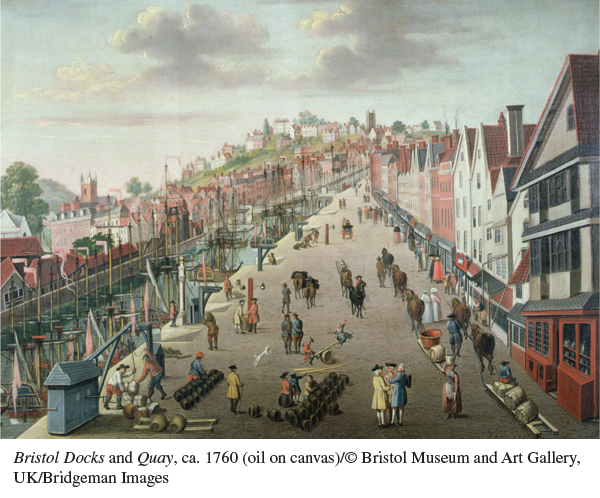A History of Western Society: Printed Page 542
A History of Western Society, Value Edition: Printed Page 522
A History of Western Society, Concise Edition: Printed Page 543
Introduction for Chapter 17
17
The Expansion of Europe
1650–1800
Absolutism and aristocracy, a combination of raw power and elegant refinement, were a world apart from the common people. For most people in the eighteenth century, life remained a struggle with poverty and uncertainty, with the landlord and the tax collector. In 1700 peasants on the land and artisans in their shops lived little better than had their ancestors in the Middle Ages, primarily because European societies still could not produce very much as measured by modern standards. Despite the hard work of ordinary men, women, and children, there was seldom enough good food, warm clothing, and decent housing. The idea of progress, of substantial improvement in the lives of great numbers of people, was still the dream of only a small elite in fashionable salons.
Yet the economic basis of European life was beginning to change. In the course of the eighteenth century, the European economy emerged from the long crisis of the seventeenth century, responded to challenges, and began to expand once again. Population resumed its growth, while colonial empires extended and developed. Some areas were more fortunate than others. The rising Atlantic powers — the Dutch Republic, France, and above all England — and their colonies led the way. The expansion of agriculture, industry, trade, and population marked the beginning of a surge comparable to that of the eleventh-

CHAPTER PREVIEW
What important developments led to increased agricultural production, and how did these changes affect peasants?
Why did the European population rise dramatically in the eighteenth century?
How and why did rural industry intensify in the eighteenth century?
What were guilds, and why did they become controversial in the eighteenth century?
How did colonial markets boost Europe’s economic and social development, and what conflicts and adversity did world trade entail?
Chronology
| 1600–1850 | Growth in agriculture, pioneered by the Dutch Republic and England |
| 1651–1663 | British Navigation Acts |
| 1652–1674 | Anglo- |
| 1700–1790 | Height of Atlantic slave trade; expansion of rural industry in Europe |
| 1701–1763 | British and French mercantilist wars of empire |
| 1720–1722 | Last outbreak of bubonic plague in Europe |
| 1720–1789 | Growth of European population |
| 1756–1763 | Seven Years’ War |
| 1760–1815 | Height of parliamentary enclosure in England |
| 1763 | Treaty of Paris; France cedes its possessions in India and North America |
| 1770 | James Cook claims the east coast of Australia for England |
| 1776 | Adam Smith publishes An Inquiry into the Nature and Causes of the Wealth of Nations |
| 1805 | British takeover of India complete |
| 1807 | British slave trade abolished |